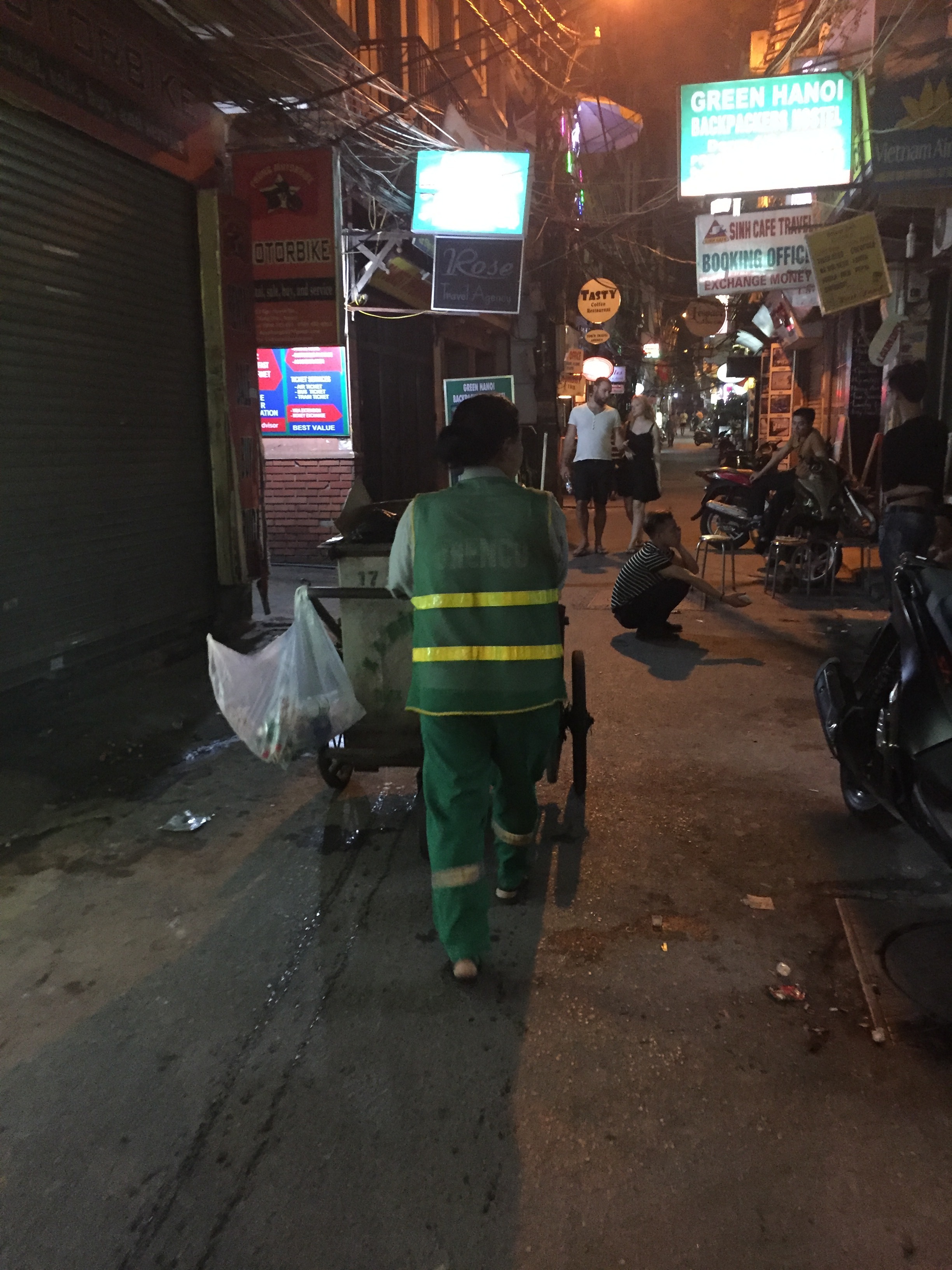Garbage, Marriage and Bob Dylan
HANOI - I first noticed the garbage collectors. They are overwhelmingly women, contrary to the norm in the USA. Then I realized that women do most of the street selling, too. And that many images of soldiers in combat art feature women. I learned that the Trưng Sisters and Lady Triệu remain among the most legendary of ancient Vietnamese warriors, who successfully led the Vietnamese against those pesky Chinese invaders at different times. I thought, ‘Wow, what strong, tough, hard-working women.’
And indeed they are. But this is not so noteworthy, because women are expected to be. Like many societies in the world, women are usually responsible for all the childcare and housework in Vietnam. But this is the 21st century after all, and while many women work out of financial necessity, many others are expected to have professional careers. (By the way, apparently, garbage collecting is grouped with cleaning and housework, and therefore a job for females.)
A fascinating article about gender relations in Vietnam explains that “instead of liberating the women, as claimed, the government has put a ‘second shift’ on the women: they work outside the home in addition to carrying out their domestic work.” A new generation of well-educated middle and upper class women now knows professional success. However, as a friend working for an international company in Hanoi explained, her female Vietnamese coworkers often turn down promotions. They feel they cannot handle the extra responsibility with all they are expected to do at home.
Traditionally, when a Vietnamese woman marries a Vietnamese man, she basically becomes a part of his family: she moves in with them, takes care of his (sometimes extended) family and does the lion’s share of the housework. A Vietnamese friend of mine has been married for a year, but because her husband currently works abroad, the only socially acceptable place for her to live is with his parents, where she cooks and does the dishes alone most nights. I went over for dinner and witnessed this in action. She was the only member of the family serving and cleaning up. The twenty-seven-year-old law school graduate can neither live with friends nor alone, for fear of upsetting her own family and her in-laws.
Notably, she begrudges her situation and wants a change. Her husband seems to agree. He helps her with the dishes when he is around. I have heard the same sentiments from other young Vietnamese and made the unoriginal conclusion that things are gradually changing. Like many generations in societies around the world before them, as young Vietnamese people are exposed to other ways of life, they seem to be pushing back against traditional expectations, including the inescapable issue of marriage.
In Vietnam people commonly ask about relationship status, even of strangers. I can attest to this personally. “You aren’t married? Why not? Oh, your boyfriend is away? Why is he not here? Maybe a Vietnamese man would be better. I have a nephew….” I met one American who lived here happily for many years and learned fluent Vietnamese, but finally decided to leave when she realized the incessant questions about her relationship status were not letting up. Imagine having to answer, “Why are you single?” every time you go to the market.
I have however spoken with young Vietnamese who insist they do not want to get married, despite the constant pressure. Several have told me that their parents are urging them to “settle” for a spouse, rather than wait “naively” for love. Those young people still plan to disregard the expectations. They have seen peers unhappily trapped in marriages they "settled" for.
An American friend was feeding his baby in a restaurant in Hanoi the other night, and a Vietnamese waiter commented, “That’s the strangest thing I’ve seen all day: a man feeding a baby.” Today though, I saw a young male Vietnamese man holding his baby. He’s the only one I’ve seen so far, compared to hundreds of women, but still. I also saw my first male garbage collector yesterday. Progress?
Slowly maybe, but the times, it seems, they are a changin’. In the meantime, I remain in awe of the work ethic of Vietnamese women.
P.S. If you want to learn a lot more, here’s another thorough take on gender equality and feminism in Vietnamese history and contemporary society.

